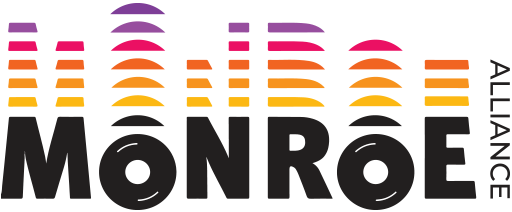Building and operating a mobile broadband (MBB) testbed is the key goal of the MONROE project. Such a testbed, however, cannot be built without the feedback of the experimenters who are the main users of it. Therefore, external users are in the core of the MONROE project.
The external experimenters (third parties ) in MONROE project were financed via two Open Calls. The Calls were competitive and all applications were independently evaluated based on their degree of innovation, scientific excellence and/or industrial relevance, and suitability in scale and complexity of the experiment. Each proposal was reviewed by reviewers from both academia and industry and by at least one external reviewer.
The experimenters selected through the Second Open Call accessed the platform to collect results of passive and active measurements. Some proposed protocol experiments as well as SW extensions to the platform.
Call information
Call name: Second MONROE Open Call for Experiments and Extensions
Total budget: 1,500,000 Euros
Number of proposals to be funded: up to 15
Maximum funding per proposal: 100,000 Euros
Number of partners per proposal: The target number of participants per proposal is maximum 2.
Type of participants: The profile of participants is academics, industry or SMEs active in research and/or development of mobile broadband technologies, protocols and/or applications. The rules of participation are the same as for any H2020 proposal.
Call deadline: Friday, December 2, 2016 at 17:00h CET (Brussels time)
Starting date: March, 2017
The MONROE consortium funded the following 15 proposals from a total number of 52 received during the second open call:
- CaMCoW: Characterising Mobile Content Networks in the Wild,Queen Mary University of London (QMUL), UK.
- CGNWatcher: Characterizing Carrier Grade NATs in Mobile Broadband Networks, Scientific Excellence, Universidad Carlos III de Madrid, Spain.
- CloudEyes: Smart City Security Monitoring Platform,Institute of Bioorganic Chemistry of the Polish Academy of Sciences, Poznań Supercomputing and Networking Center (PSNC), and TechInnowacje sp. z o.o., Poland.
- DAPHNE: Dynamic Pricing in HetNets, University of Thessaly (UTH), Greece.
- eSON: Network Self-Optimization based on End-To-End measurements, Universidad de Málaga (UMA), Spain.
- FaLiCaB: Fast and Lightweight Capacity Benchmarking of Mobila Broadband Networks in MONROE, TU WIEN / Institute of Telecommunications (TUW), A1 Telekom Austria AG (A1), Austria.
- FELICIA: Feasibility study of latency-critical connected vehicle applications in MONROE, SICS Swedish ICT, Sweden.
- MEC: Multi-homing with Ephemeral Clouds on the Move, University of Macedonia, Greece.
- MONROE-SON: Experimental validation of REM-based machine learning algorithms for SON using MONROE nodes, RED Technologies SAS, France and Instituto Politécnico de Castelo Branco, Portugal.
- MPTCP: Towards, end-to.end Multipath TCP,Université catholique de Louvain, Belgium.
- NeutMon: Network Neutrality in Mobile Broadband, University of Pisa, Italy.
- OPTIMAL: Optimization of QoE of Mobile Broadband Services through Machine Learning, Modio Computing SP, Greece & Paris Descartes University (PDU), France.
- RASnet: Programmable and Robust Smart Grid Data and Control, DAI-Labor, TU Berlin, Germany.
- RECON: Reconstruction of operator policies in MBB networks for improved user experience, Eötvös Loránd University, Hungary.
- TTOff: Traffic and Data Offloading in Mobile Networks,University Politehnica of Bucharest, Romania.
